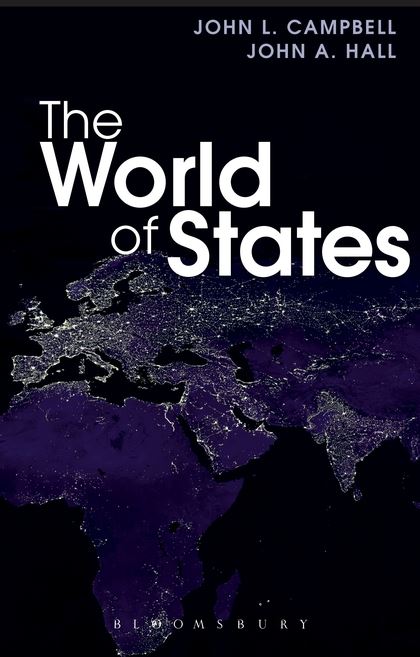Visiting professors John L. Campbell & John A. Hall publish: The world of states
The world of states
Globalization has affected the way that the state is seen by the public and academics. Some say that the state has lost it powers, outflanked from above by economic change and from below by the rise of regional and nationalist movements. More common is the view that states have detrimental effects on the development of economies and societies. This book disagrees. With the increasing realization that countries of the underdeveloped world will never advance without the rule of law, sound state institutions, and strong national identities the tenor of debate is now changing. States are still necessary for human progress. What matters is constructing them along the right lines.
This topical book offers a historical account of state forms in the twenty-first century. It focuses on what makes states effective—institutional arrangement and national identity—thus offering a different approach to existing literature which has tended to focus on the predatory characteristics of states. The book covers all the major state forms of this century. It focuses on the nature and role of states in the United States and the European Union; the newly industrializing countries, notably Brazil, Russia, India and China; and those much less successful states of Africa, Latin America and the Middle East. It explores whether U.S. state hegemony is jeopardized in the foreseeable future by challenges posed by the EU, the BRICS, and others.
Campbell, John L. & John A. Hall: The world of states, 138p, Bloomsbury February 2015, ISBN: 978-1-84966-043-3
